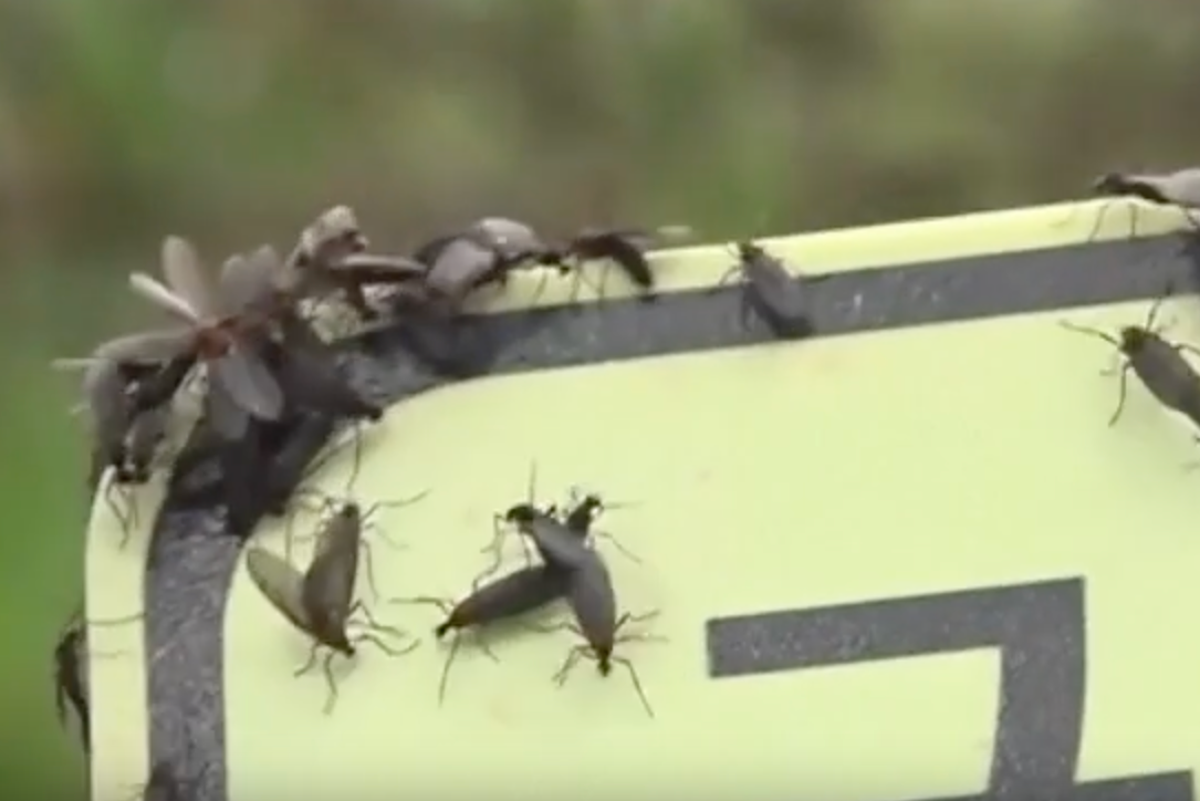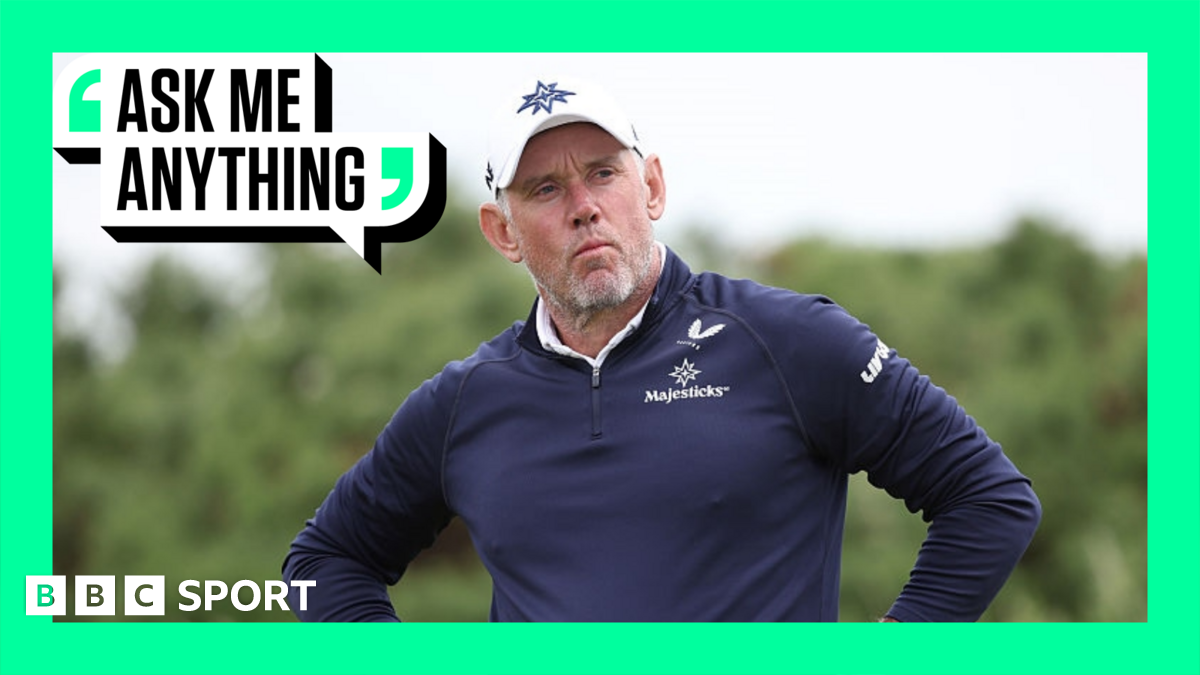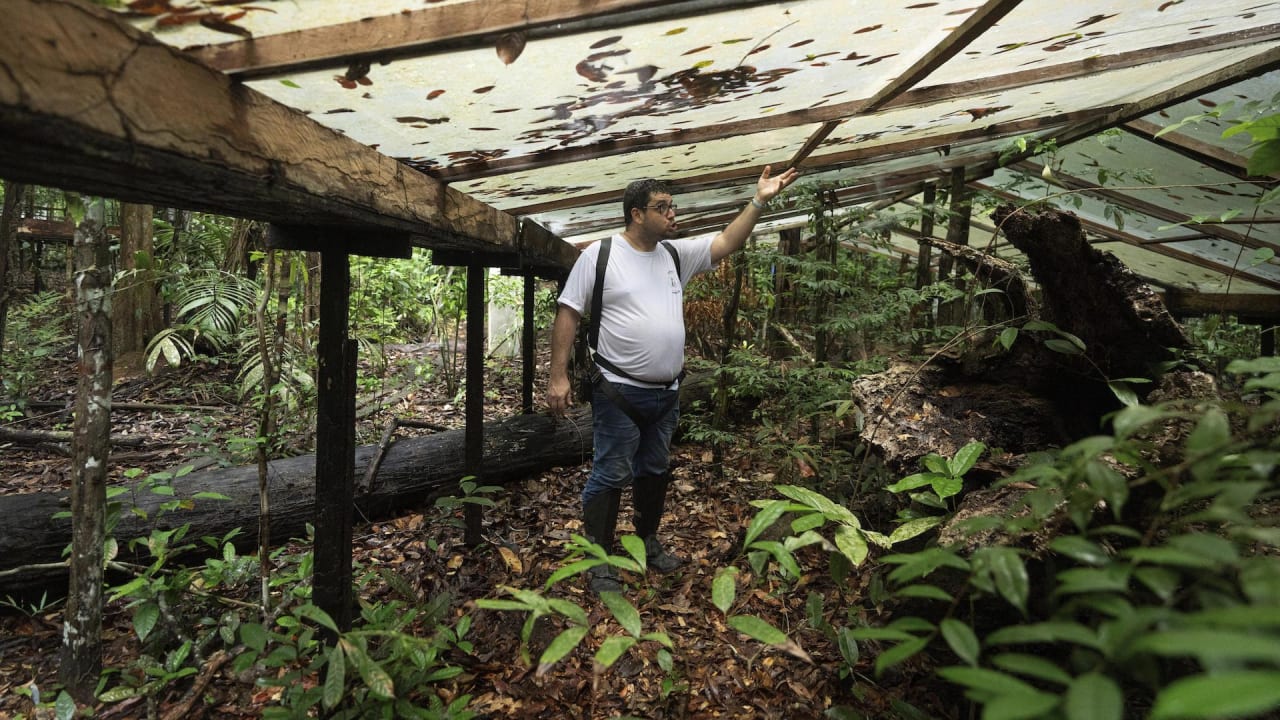Patagonia and other outdoor brands bet on nonpartisan support for public lands. It worked

If you follow any variety of outdoor-focused brands on social media, you probably noticed these that companies were less focused in recent weeks on pushing products and more focused on pushing advocacy.
And those efforts paid off: On Saturday, a plan to sell off public lands for development was stripped from the budget reconciliation bill, also referred to as the “One Big Beautiful Bill Act,” which passed in the Senate Tuesday.
That’s a victory for public lands advocates who opposed the controversial provision backed by Senator Mike Lee of Utah to put millions of acres of federal land up for grabs. Even after the provision was found to violate Senate rules, Lee seemed intent to follow through with a smaller package of land before removing the plan from the bill altogether.
Lee, a Republican who chairs the Senate Committee on Energy and Natural Resources, ultimately conceded to the opposition from Republican lawmakers representing Western states. Amid the political back-and-forth in Washington, outdoor recreation brands like Patagonia and REI, the outdoor mapping company onX, and the outdoor lifestyle brand MeatEater kept up a steady drumbeat of messaging to urge voters to voice their opposition to the plan.
“The last several weeks proved what Patagonia and our partners have been saying for years—that Americans of all political persuasions believe in conservation,” J.J. Huggins, a spokesperson for Patagonia, tells Fast Company. If anything, he says, this year made it even more clear that the protection of public lands is “apolitical.”
A page out of the Project 2025 playbook
Bipartisan support or no, it’s impossible to ignore the inherent politics at play, as the Republican-backed proposal has been bandied about previously by people in the party, including in the Project 2025 playbook.
Outdoor brands focused on rallying their followers around opposition to the policy, while steering clear of the politics, showing it’s possible to unite voters who have a shared conviction. A recent survey by Trust for Public Land found that 71% of Americans oppose selling public lands, while other indicators suggest the share is even higher.
News that the provision had been stripped brought a sense of relief and satisfaction, along with an encouraging sign of the strength of this broad coalition, says Mark Kenyon, host of MeatEater’s Wired to Hunt podcast. “It also proved that when public landowners of all stripes band together—hunters and anglers, hikers and climbers, conservationists and environmentalists—we are a powerful force.”
Collectively, outdoor-focused brands made a loud statement, even as many companies have opted to become quieter in today’s polarizing political environment.
The “unprecedented” sense of unity among the greater outdoor recreation world is reason for optimism, says Becky Marcelliano, senior brand manager for advocacy at onX. “Like I’ve never seen before, the community at-large put down their biases and political leanings and stood tall for what they innately believe in.”
Patagonia’s push
While preserving public land access is core to the missions of MeatEater and onX, these companies are relatively young. Patagonia, meanwhile, has taken up many such causes since Yvon Chouinard founded it in 1973. “It’s baked into our DNA,” Huggins says.
The Ventura, California-based outdoor apparel giant has become a model for other companies to emulate, although it’s not immune to receiving blowback on its various advocacy efforts. “We hear it all, we’re used to it,” he adds.
But there was a different tenor to this year’s push for preserving public lands access, even compared with 2017, when Patagonia campaigned against Trump’s plans to reduce the size of Bears Ear National Monument.
“This year really feels more bipartisan,” Huggins says.
MeatEater’s Message
Those party lines didn’t completely disappear, however, and were evident in the comments on several of MeatEater’s social media posts, where some users took the opportunity to point fingers.
Even though Kenyon says that MeatEater has a long-standing commitment to speaking out and taking action in defense of wildlife and wild places, some followers cited what they perceive to be hypocrisy by the company.
A typical post by the MeatEater team on Instagram often garners dozens of comments, whereas recent posts about protecting public lands saw that number swell to as much as 800-plus.
Ryan Busse, a Democrat who mounted an unsuccessful bid for governor of Montana in 2024, even weighed in, calling out MeatEater for platforming Donald Trump, Jr. and Tucker Carlson on past podcasts.
Though Kenyon says he can’t speak to past guests on other podcasts, he adds that the company has always focused on educating its community and will “do whatever we can” to defend public lands, waters and wildlife.
“We’ve never shied away from tough conversations, and this win shows that it’s worth the pushback and that we’re not alone in this conviction,” he says.
Moreover, he says, the Bozeman, Montana-based company has been “putting our money and time where our mouth is” with efforts that include organizing volunteer projects for public land habitat restoration, raising funding for its land access initiative, and engaging alongside the broader hunting community.
“We’re not just doing this when it’s convenient and trendy,” Kenyon says.
OnX organizes
While preserving access to public lands has been core to onX’s mission for several years, advocacy is relatively new for the outdoor navigation company. Aside from campaigns related to corner-crossing—a legal gray area in which people cross from one corner of public land to another where private land borders both—the company hasn’t taken “a ton of hard stances” in the past, Marcelliano says.
Coming into 2025, onX was bracing for potential threats to public lands and the Bozeman-based company wanted to “stand a little taller” in its policy beliefs, Marcelliano says.
The risk of alienating some supporters is something the company considers, but the universality of support for public lands makes navigating this territory easier. “We try to find these sweet spots where we’re all more similar than different.”
Saturday’s news is a win worth celebrating alongside the people who made it possible, Marcelliano says. She credits the greater outdoor recreation world coming together and making a confusing process easier to digest for helping to rally the masses into action.
A “flood the lines” campaign supported by several brands resulted in more than 500,000 letters and phone calls to members of Congress.
After seeing outdoor enthusiasts of all sorts “get fired up together,” Marcelliano is optimistic that this sense of unity will stick with people. She also points to the alignment among onX’s audience on social media. Most posts on the company’s main Instagram page receive maybe a few hundred likes, at most, whereas its weekend post declaring “victory for public lands” has garnered nearly 19,000 likes.
“It’s been incredible,” Marcelliano says.
More battles to wage
But the victory lap may not last long.
While announcing his withdrawal of the federal lands sales provision from the mega-bill, Senator Lee vowed to keep the spirit of this effort alive.
“I continue to believe the federal government owns far too much land—land it is mismanaging and in many cases ruining for the next generation,” he wrote on social media.
Marcelliano and Kenyon point to the demonstrated strength and unity of the broader outdoor community as a harbinger of what’s possible when this coalition inevitably rallies again in the future.
For Patagonia, much of its focus will return to advocating for the protection of public lands in Alaska, which is facing “numerous threats we hope to stave off in the coming weeks and months,” Huggins says. More broadly, the company will remain focused on those issues where it can make the most difference.
“Not every company has the luxury of investing these kinds of resources,” Huggins says. “If you can afford it, if you have people dedicated to these things, it unlocks a whole other level of power.”
What's Your Reaction?
 Like
0
Like
0
 Dislike
0
Dislike
0
 Love
0
Love
0
 Funny
0
Funny
0
 Angry
0
Angry
0
 Sad
0
Sad
0
 Wow
0
Wow
0





















































![Ironheart Boss Talks About [Spoiler] Finally Joining the MCU, and Where/If Finale Cliffhanger Will Get Resolved](https://tvline.com/wp-content/uploads/2025/07/ironheart-finale-mephisto-reveal.png?#)








































